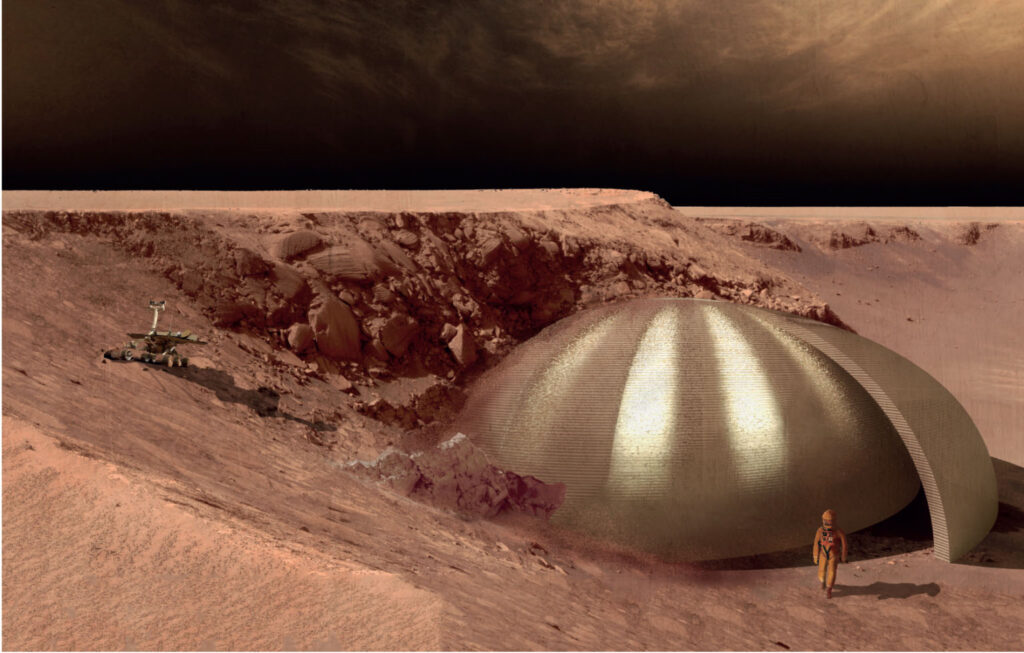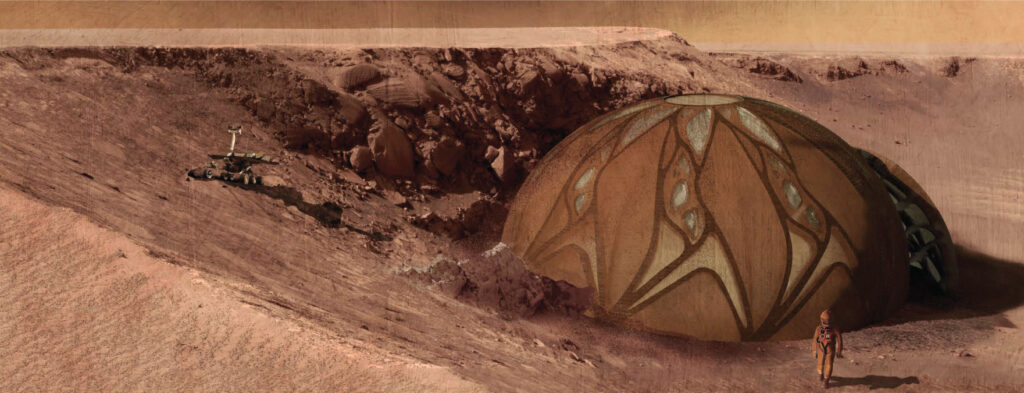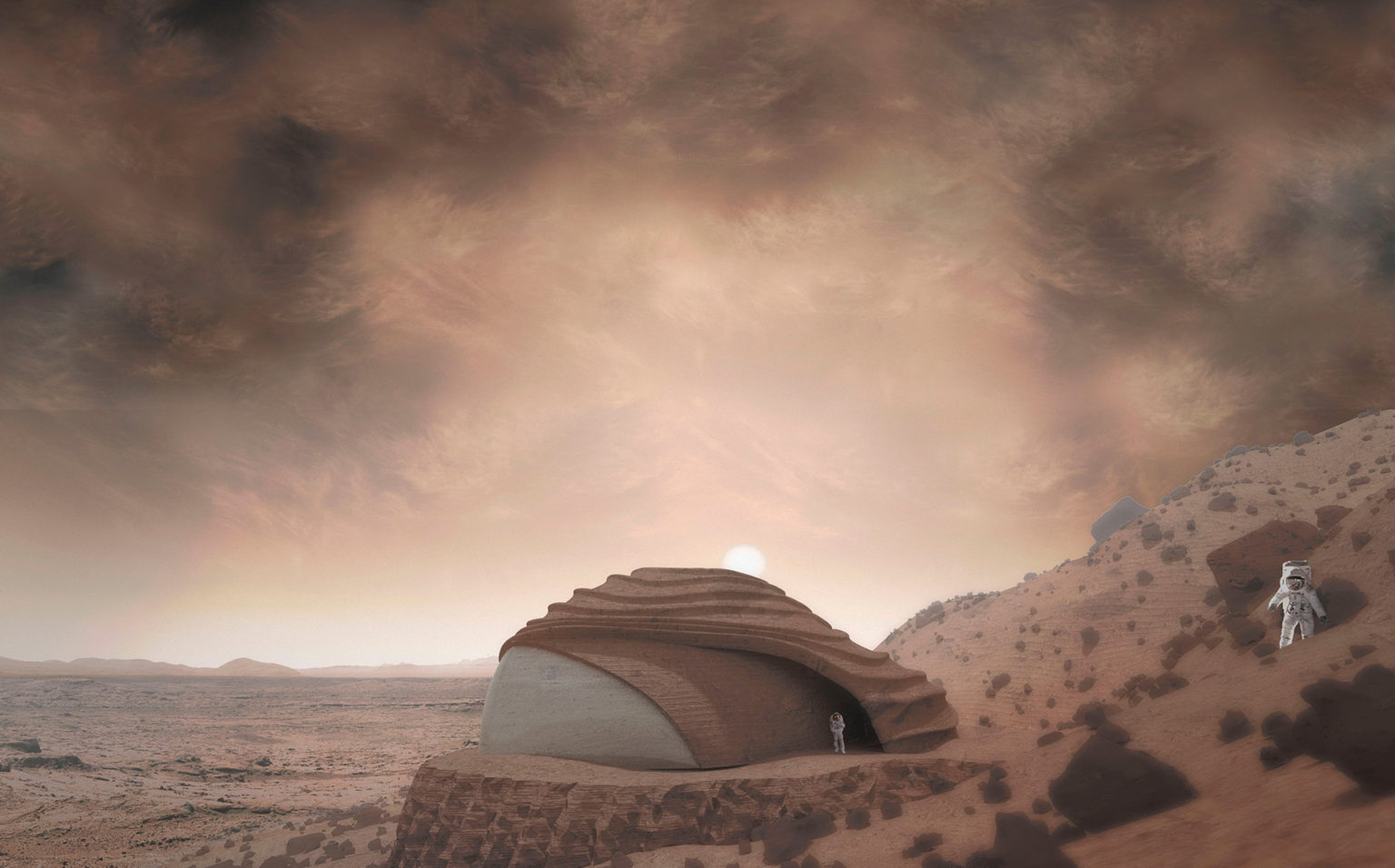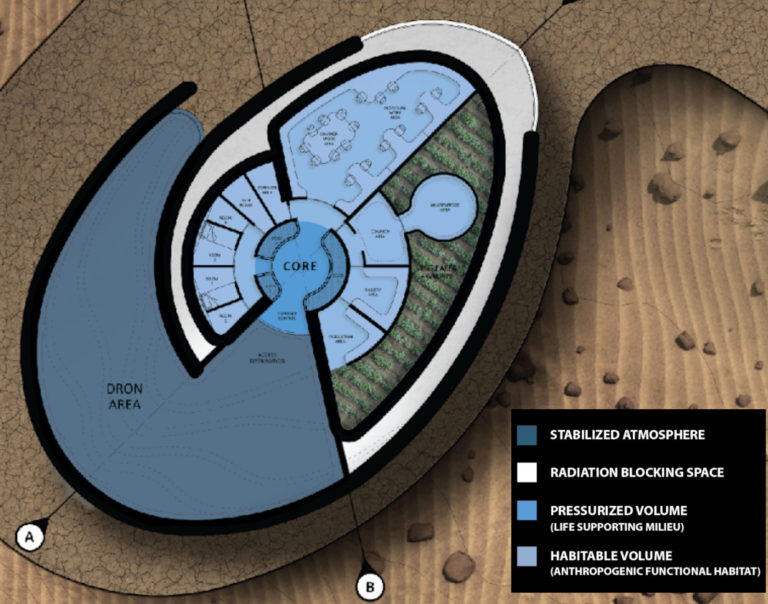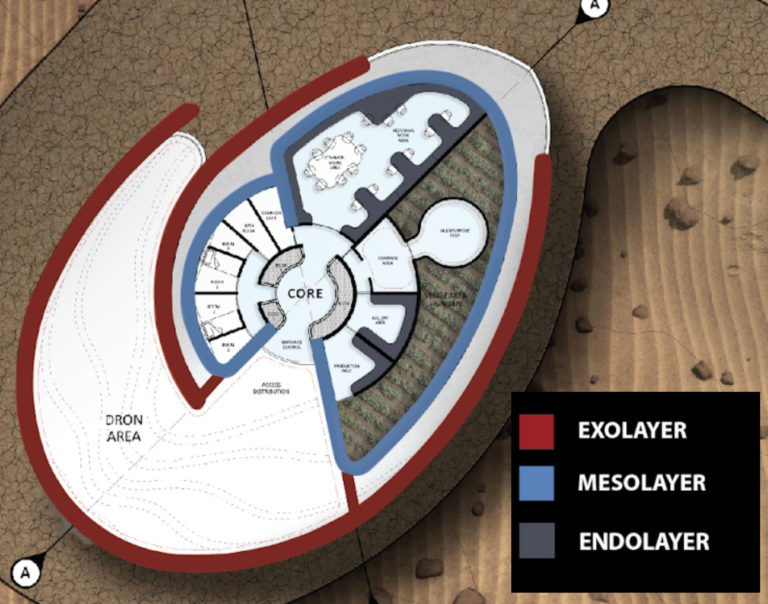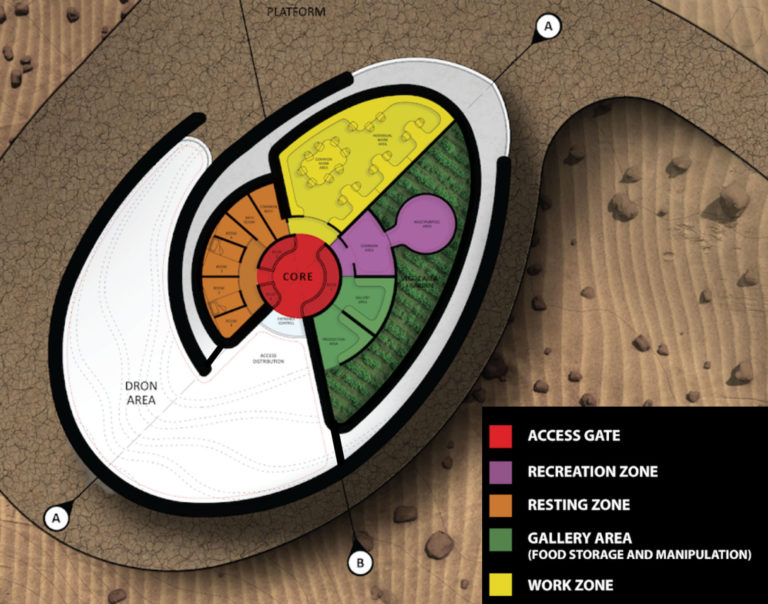Design for a research station in Mars, built trough autonomous systems of 3D printing and using native materials from the martian surface. Project finalist of the 3D-Printed Habitat Challenge of NASA.
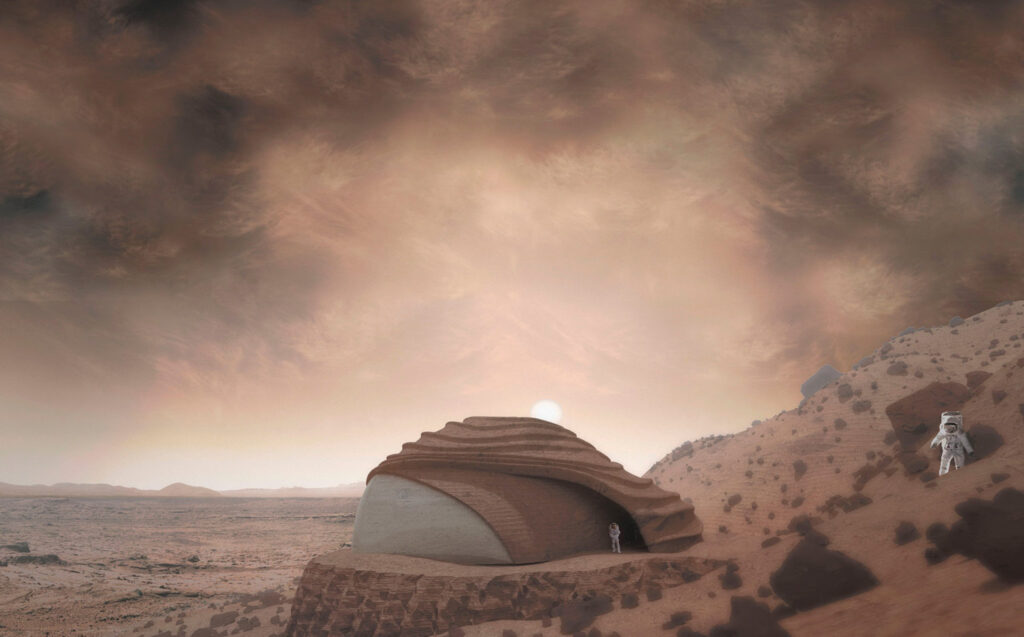
Year: 2015
Role: Architect
Team: Universal Projects (José Miguel Armijo, Aníbal Fuentes, Juan Pablo Ugarte, Alejandro Weiss, José Hernández & Paloma González)
The N3ST (Nested 3D-Printed Settlement Technology), is a safe-to-fail design based on the principles of Redundancy, Simplicity and Incrementalism, which aims 1) to provide atmospheric stabilization to allow robotic-building in safe conditions, minimizing error and robot failure; 2) to create a life-supporting milieu, granting the physiological conditions necessary for human life; 3) and to generate functional, comfortable infrastructure, understood as design solutions oriented to efficiently support anthropogenic use of the space. These goals are achieved by way of three functional layers: The Exo-layer provides a primary protection to the settlement, that is, its function is to quickly stabilize atmospheric conditions for further development of tasks that require greater control. The Meso-layer is a hermetic volume who provides an atmosphere with the necessary physiological conditions for sustaining the human life, controlled by the ECLSS. Finally, the Endo-layer creates all the necessary for the development of the activities performed by the crew members, like furniture and resources supply networks.
Project finalist of the 3D-Printed Habitat Challenge of NASA and exhibited at the ASCE Earth & Space Conference in Orlando, Florida.
